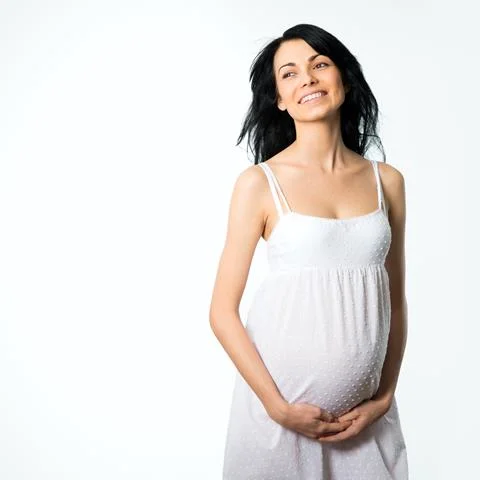Nowadays, many women choose to become pregnant after the age of 35. This is often related to professional life, general fertility issues, and sometimes a conscious decision made by the couple. It is important to note that pregnancy after the age of 35 carries higher risks than pregnancy at a younger age.
Pregnancy after the age of 35 – How to prepare?
The later a couple decides to have a child, the more challenges may arise when trying to conceive. Therefore, both the woman and the man should prepare for parenthood accordingly. The woman should visit a gynecologist to have a Pap smear and a breast ultrasound. Additionally, it is advisable to consult a phlebologist (a doctor specializing in vascular diseases), who can address common pregnancy-related issues such as varicose veins in the legs, genital area, or anus. Basic blood tests, such as blood sugar levels and TSH (thyroid hormone), can provide information about conditions that may affect the pregnancy, such as hypothyroidism or diabetes. Ideally, any abnormal values should be treated by a specialist before pregnancy. An important measure is also the supplementation of folic acid, which is essential for the proper development of the nervous system. Both the woman and the man should focus on a balanced and healthy diet, ensure adequate physical activity, and avoid the consumption of addictive substances. Men are also advised to avoid overheating the testes, for example by wearing tight underwear or using laptops on the lap. It is important to note that preparing for pregnancy always involves both partners.
Pregnancy after the age of 35 – Benefits
The average age at which women become pregnant has changed compared to a few years ago. This is often a conscious decision by the couple. Additionally, women who are professionally successful are often more dedicated mothers, ready to commit fully to motherhood. Maturity and accumulated experiences allow them to be calmer and more balanced mothers. Women who become pregnant after the age of 35 are less likely to “burden” their child with the idea that they missed out on something essential by raising their child or skipping certain life experiences. Of course, the decision to have a child is a deeply personal matter for each couple. A wonderful mother can be someone at 19 as well as someone over the age of 35 or 40.
Pregnancy after the age of 35 – Risks
For gynecologists, pregnancy in women over 35 years old is considered a high-risk pregnancy. The risk of complications such as pregnancy-induced hypertension, pregnancy cholestasis, gestational diabetes, or premature birth increases. Additionally, as a woman ages, the risk of chromosomal abnormalities increases, which can lead to conditions such as Down syndrome or Edwards syndrome in the child.
Women over 35 also face greater difficulties in becoming pregnant in the first place. Gynecologists recommend consulting a fertility clinic after 6 months of regular but unsuccessful attempts, rather than waiting a year as is the case with younger women. It should also be noted that with age, a woman’s ovarian reserve decreases. This can be monitored through the measurement of Anti-Müllerian Hormone (AMH).
Pregnancy after the age of 35 – Examination
Due to the risks associated with pregnancy after the age of 35, women in this age group undergo more detailed diagnostics. Prenatal screenings include genetic ultrasound of the fetus between the 11th and 14th week of pregnancy, a biochemical test (also known as the PAPP-A test), and a biannual ultrasound screening between the 18th and 22nd week. If abnormal results are found during the first trimester, invasive tests like amniocentesis are recommended. Additionally, it is advisable to consider the non-invasive fetal DNA test, which is specifically recommended for mothers over 35.










